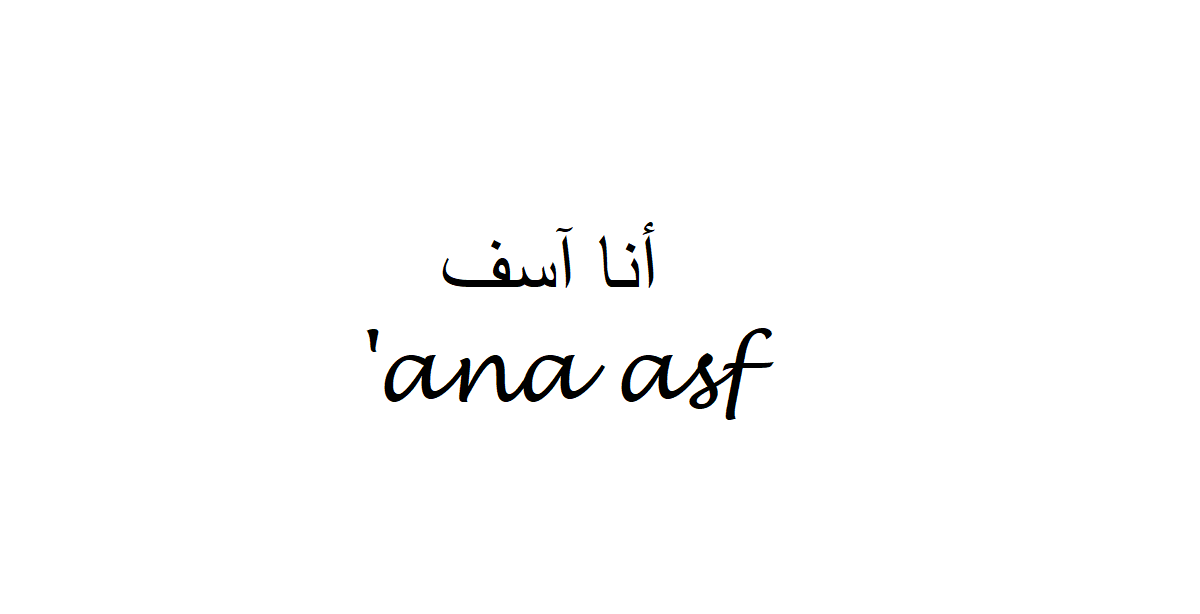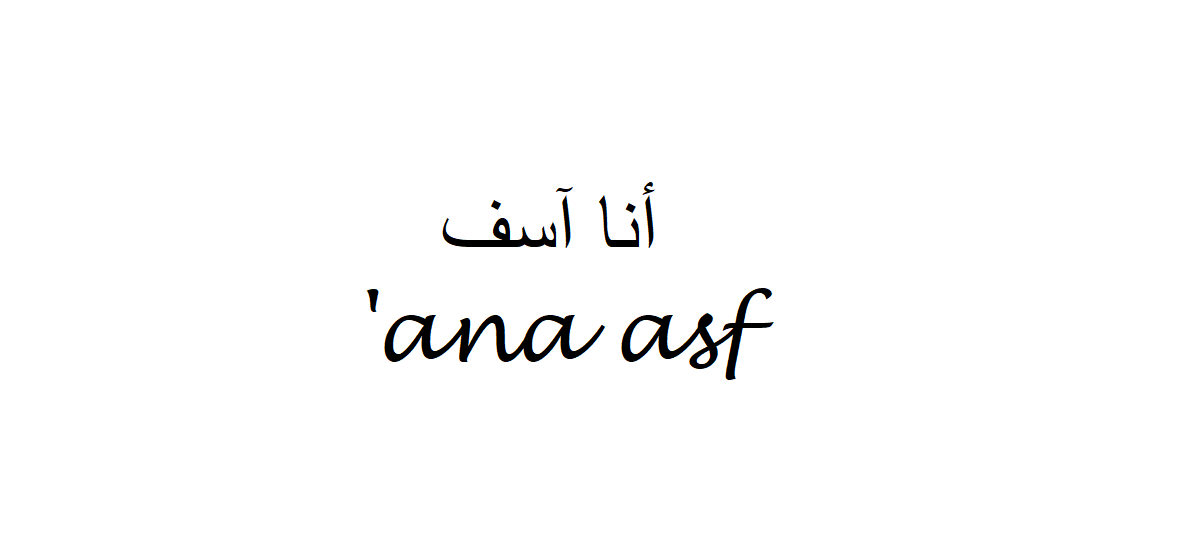Saying “I’m sorry” in Arabic is an important expression of remorse and regret. It has the power to express deep contrition while also conveying a sense of humility and respect. In its simplest form, the phrase translates to “Ana asif” (أسف انا). However, depending on the context and situation, there are various other ways to say it too.

How to Say I’m Sorry in Arabic
One way to say “I’m sorry” in Arabic is by using the phrase “Aasafna” (آسفنا) which literally means “we apologize”. This can be used when expressing regret for something that was done collectively or as a group.
Another way of expressing remorse is through the phrase “Assifni” (أسفني). This implies that you accept responsibility for whatever happened and take full accountability for your actions or words. You can use this when apologizing directly to someone who was hurt by what you said or did.
People may prefer more formal language such as saying “Afwan” (واْفَع) which literally translates into ‘forgiveness’. If you want to emphasize how genuinely sorry you are about something then this might be a better option than simply saying ‘ana asif’.
Example Sentences using I’m Sorry in Arabic
1. I’m sorry for not being there when you needed me. – أنا آسف لأنني لم أكون هناك عندما كنت بحاجة لي – ‘ana asf li’anani lam ‘akun hunak eindama kunt bihajat li
2. I’m sorry if I hurt your feelings in any way. – أنا آسف إذا جرحت مشاعرك بأي شكل من الأشكال – ‘ana asf ‘iidha jarahat mashaeiruk bi’ayi shakl min al’ashkal
3. I’m sorry that my mistake caused so much trouble. – أنا آسف لأن خطئي تسبب في الكثير من المتاعب – ‘ana asaf li’ana khatyiy tasabab fi alkathir min almataeib
4. I’m sorry if what I said came across the wrong way. – أنا آسف إذا جاء ما قلته بطريقة خاطئة – ‘ana asf ‘iidhan ja’ ma qultuh bitariqat khatia
5. I’m sorry for not listening to you earlier today. – أنا آسف لعدم الاستماع إليك في وقت سابق اليوم – ‘ana asf lieadam alaistimae ‘iilayk fi waqt sabiq alyawm


 Do You Speak English in Arabic
Do You Speak English in Arabic